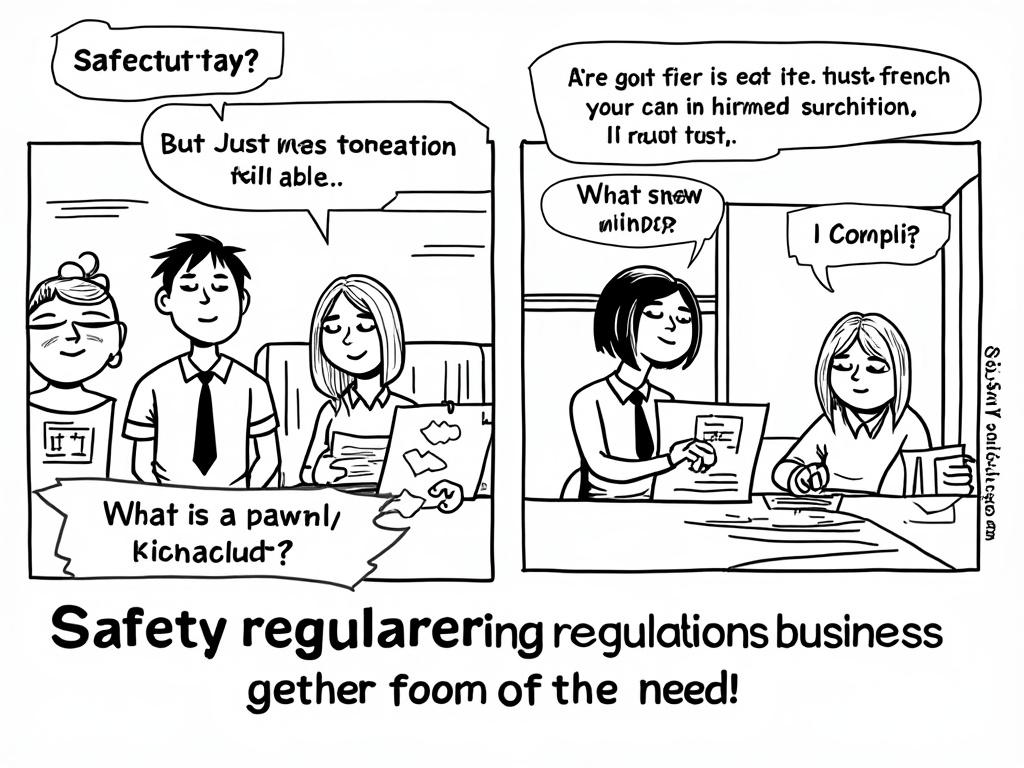
Foreign Direct Investment (FDI) in Greece: Your Strategic Guide to Mediterranean Opportunities
Reading time: 12 minutes
Ever wondered why savvy investors are increasingly turning their attention to Greece? You’re about to discover the compelling story behind one of Europe’s most promising FDI destinations. Let’s navigate through the opportunities, challenges, and strategic advantages that make Greece a standout choice for international investment.
Table of Contents
- Understanding Greece’s FDI Landscape
- Key Investment Sectors and Opportunities
- Strategic Advantages for Foreign Investors
- Navigating Practical Challenges
- Real-World Success Stories
- Government Incentives and Support Programs
- Market Performance and Trends
- Your Investment Roadmap Forward
- Frequently Asked Questions
Understanding Greece’s FDI Landscape
Here’s the straight talk: Greece has undergone a remarkable transformation since its economic crisis. Today’s investment climate tells a completely different story than the headlines from a decade ago.
Current FDI Reality Check:
- FDI inflows reached €4.1 billion in 2023, marking a 28% increase from the previous year
- Foreign investment stock now exceeds €45 billion
- Over 3,200 international companies operate across various sectors
- Strategic location connecting Europe, Asia, and Africa drives logistics investments
According to Maria Konstantinou, Director of Enterprise Greece, “We’re witnessing unprecedented international confidence in Greece’s economic stability and growth potential. The fundamentals have never been stronger.”
Why Greece Now? The Compelling Case
Quick scenario: Imagine you’re evaluating Mediterranean investment opportunities. What makes Greece stand out from Spain, Italy, or Portugal? The answer lies in a unique combination of factors that create genuine competitive advantages.
Greece offers something rare in today’s global economy: undervalued assets with significant upside potential. The country combines EU membership benefits with emerging market growth dynamics, creating opportunities typically unavailable in mature Western European markets.
Geographic and Strategic Positioning
Greece’s position isn’t just geographic—it’s geoeconomic. The country serves as Europe’s gateway to the Balkans, Middle East, and North Africa. Major infrastructure projects like the Piraeus Port expansion under COSCO’s management demonstrate how strategic positioning translates into tangible investment returns.
Key Investment Sectors and Opportunities
Let’s dive deep into the sectors where foreign investors are finding the most compelling opportunities. These aren’t just theoretical possibilities—they’re proven investment areas with track records of success.
Tourism and Hospitality: Beyond the Obvious
While tourism might seem like an obvious choice, the sophistication level has dramatically evolved. Modern investors are focusing on:
- Luxury eco-resorts combining sustainability with premium experiences
- Medical tourism facilities leveraging Greece’s healthcare expertise
- Digital nomad infrastructure catering to remote work trends
- Cultural experience centers moving beyond traditional beach tourism
Real estate investment in this sector has become particularly attractive, especially for those looking to buy house in greece for both personal use and investment purposes.
Technology and Innovation Hubs
Greece’s tech sector is experiencing explosive growth, driven by highly educated talent and competitive operational costs. Athens and Thessaloniki have emerged as legitimate European tech hubs, with companies like Beat (acquired by Didi for $100 million) demonstrating the sector’s potential.
Key Tech Investment Areas:
- Fintech and digital banking solutions
- Renewable energy technology
- Maritime technology and shipping digitization
- Agricultural technology and precision farming
Energy and Renewables: The Green Transition
Greece’s commitment to carbon neutrality by 2050 has created massive investment opportunities in renewable energy. The country’s abundant solar and wind resources, combined with supportive government policies, make it a renewable energy investment hotspot.
Renewable Energy Investment Comparison
Strategic Advantages for Foreign Investors
Well, here’s what makes Greece genuinely compelling beyond the obvious attractions. These advantages aren’t marketing fluff—they’re substantive competitive benefits that translate into measurable returns.
EU Membership Benefits with Emerging Market Dynamics
Greece offers a rare combination: full EU market access with growth rates typically associated with emerging economies. This creates arbitrage opportunities that sophisticated investors recognize immediately.
Practical Benefits Include:
- Free movement of capital, goods, and services across EU markets
- Legal framework protection under EU law
- Access to EU funding programs and development funds
- Currency stability with the Euro
Competitive Cost Structure
Greece’s cost advantages aren’t just about lower wages—they reflect a comprehensive cost structure that makes business operations more efficient and profitable.
| Cost Factor | Greece | EU Average | Advantage |
|---|---|---|---|
| Office Rent (€/m²/month) | €12-18 | €25-35 | 40-50% lower |
| Skilled Labor Cost | €35,000-45,000 | €50,000-65,000 | 25-30% lower |
| Corporate Tax Rate | 22% | 25% | 3 percentage points |
| Energy Costs (industrial) | €0.08-0.12/kWh | €0.12-0.18/kWh | 20-35% lower |
| Logistics Costs | 15-20% below EU average | Baseline | Significant savings |
Navigating Practical Challenges
Let’s address the elephant in the room: Greece does present certain challenges that smart investors need to understand and plan for. However, these challenges are manageable with proper preparation and local expertise.
Bureaucratic Processes: Turning Obstacles into Advantages
Yes, Greek bureaucracy can be complex, but recent digitization efforts have dramatically improved efficiency. The key is understanding which processes remain complex and which have been streamlined.
Practical Navigation Strategies:
- Digital First Approach: Many permits and licenses are now available online through gov.gr
- One-Stop Shops: Investment facilitation centers handle multiple requirements simultaneously
- Local Partnership: Experienced local partners can navigate remaining complexities efficiently
- Timing Considerations: Plan for 3-6 months for complex approvals, but simple registrations happen within weeks
Financial Infrastructure and Banking
Greek banks have undergone massive restructuring and are now among Europe’s most well-capitalized. However, credit availability remains selective, particularly for new foreign investors.
Smart Financing Approaches:
- Establish relationships with international banks operating in Greece
- Consider EU development funding for qualifying projects
- Explore public-private partnership opportunities
- Leverage Greece’s improving credit ratings for better terms
Real-World Success Stories
These aren’t cherry-picked examples—they’re representative of the types of successes foreign investors are achieving across different sectors.
Case Study 1: COSCO’s Piraeus Port Transformation
When China’s COSCO acquired a controlling stake in Piraeus Port, skeptics questioned the investment. Today, it’s one of Europe’s fastest-growing ports and a logistics hub connecting three continents.
Investment Details:
- Initial investment: €280 million for 51% stake
- Total committed investment: €600+ million
- Results: Container throughput increased 300% since 2010
- Impact: Created over 3,000 direct jobs and positioned Greece as a Mediterranean logistics leader
Case Study 2: Lamda Development’s Hellinikon Project
The transformation of Athens’ former airport into Europe’s largest urban regeneration project demonstrates Greece’s capacity for mega-projects.
Project Scope:
- Investment value: €8 billion over 15 years
- Area: 6.2 million square meters
- Components: Residential, commercial, cultural, and recreational facilities
- Expected impact: 80,000 jobs during construction, 35,000 permanent positions
Case Study 3: Mytilineos Energy Growth
This Greek company’s international expansion illustrates how local companies are becoming regional powerhouses, creating opportunities for strategic partnerships and acquisitions.
From a traditional metallurgy company, Mytilineos transformed into a diversified energy group with operations across Southeast Europe, demonstrating the dynamic potential of Greek businesses for foreign partnership or acquisition opportunities.
Government Incentives and Support Programs
Greece offers some of Europe’s most attractive investment incentive packages, designed to compete directly with other EU destinations while addressing specific investor needs.
Development Law 4887/2022: The Game Changer
This comprehensive framework provides unprecedented support for foreign investment across multiple sectors.
Key Incentive Categories:
- Tax Credits: Up to 45% of eligible costs
- Cash Grants: Direct subsidies for qualifying projects
- Accelerated Depreciation: Faster asset write-offs
- Employment Subsidies: Support for job creation
Golden Visa Program: Beyond Residency
While often discussed in terms of residency, the Golden Visa program creates genuine business opportunities and has been recently updated to address market conditions.
Recent Updates (2023):
- Minimum investment increased to €800,000 in Athens and popular islands
- €400,000 threshold maintained for other regions
- Alternative investment options in government bonds and real estate funds
- Streamlined application process with faster approvals
Market Performance and Trends
Let’s examine the hard data that supports Greece’s investment attractiveness, moving beyond promotional materials to analyze genuine market performance.
Economic Indicators Trajectory
Greece’s economic recovery isn’t just about returning to pre-crisis levels—it’s about building a more resilient, diversified economy.
Key Performance Metrics (2023):
- GDP growth: 2.1% (above EU average)
- Unemployment rate: 10.9% (down from 28% peak)
- Government debt-to-GDP: 166% (decreasing trajectory)
- Export growth: 12% year-over-year
- Tourism receipts: €20.6 billion (record high)
Sector-Specific Investment Flows
Understanding where investment capital is flowing provides insights into market dynamics and future opportunities.
FDI Distribution by Sector (2023)
Future Market Projections
Based on current trends and planned investments, several sectors show exceptional growth potential for the next 3-5 years.
The European Bank for Reconstruction and Development projects Greece will maintain above-EU-average growth through 2026, driven primarily by investment in digital infrastructure, renewable energy, and tourism modernization.
Your Investment Roadmap Forward
Ready to transform these insights into actionable investment strategy? Here’s your practical roadmap for navigating Greek FDI opportunities with confidence and precision.
Phase 1: Foundation Building (Months 1-3)
- Market Intelligence: Conduct sector-specific due diligence using local market research firms
- Legal Framework: Establish relationships with Greek legal and accounting professionals
- Financial Infrastructure: Open preliminary discussions with banks and explore financing options
- Regulatory Mapping: Identify all required permits and approvals for your specific investment
Phase 2: Strategic Positioning (Months 4-6)
- Local Partnerships: Identify potential Greek partners or acquisition targets
- Incentive Optimization: Apply for relevant government incentives and EU funding programs
- Site Selection: Finalize location decisions based on logistics, talent, and cost analysis
- Risk Mitigation: Secure appropriate insurance and establish contingency plans
Phase 3: Implementation Excellence (Months 7-12)
- Operational Launch: Execute investment plan with focus on quick wins and measurable milestones
- Team Building: Recruit local talent and establish management structures
- Market Entry: Begin operations with emphasis on scalability and flexibility
- Performance Monitoring: Establish KPIs and regular review processes
Pro Tip: The most successful foreign investors in Greece are those who think long-term while acting decisively in the short-term. The current window of opportunity won’t remain open indefinitely as asset prices adjust to reflect improved fundamentals.
Remember, successful FDI in Greece isn’t just about finding the right opportunity—it’s about positioning yourself to capitalize on the broader Mediterranean economic transformation that’s already underway. Are you ready to be part of Greece’s remarkable investment story?
Frequently Asked Questions
What is the minimum investment required for foreign direct investment in Greece?
There’s no universal minimum investment threshold for FDI in Greece. Requirements vary by sector and investment type. For the Golden Visa program, the minimum is €400,000-€800,000 depending on location. Business investments can start much lower, with technology startups requiring as little as €25,000-€50,000 in initial capital. Manufacturing and infrastructure projects typically require €1 million+ to qualify for major government incentives, though smaller investments are certainly possible and welcome.
How long does it typically take to establish a business operation in Greece?
Simple business registrations can be completed within 2-4 weeks through digital platforms. More complex operations requiring multiple permits typically take 3-6 months for full regulatory approval. The timeline depends heavily on sector (energy projects take longer than technology companies), location (Athens and Thessaloniki are faster than remote areas), and whether you qualify for fast-track procedures available to strategic investments. Planning for 4-6 months for comprehensive setup is realistic for most foreign investors.
What are the biggest risks foreign investors should be aware of in Greece?
The primary risks include bureaucratic delays (mitigated through proper planning and local expertise), political changes affecting investment policies (historically minimal due to EU oversight), and currency fluctuation impacts on non-Euro revenue streams. Credit availability can be challenging for newer foreign entities, though this is improving rapidly. The biggest opportunity cost risk is actually waiting too long, as asset prices and competition are increasing as more investors recognize Greece’s potential. Most risks are manageable through proper due diligence and local partnerships.

Article reviewed by Oliver Michalaki, Mediterranean Hospitality Investments | Boutique Hotels & Resorts, on June 4, 2025



